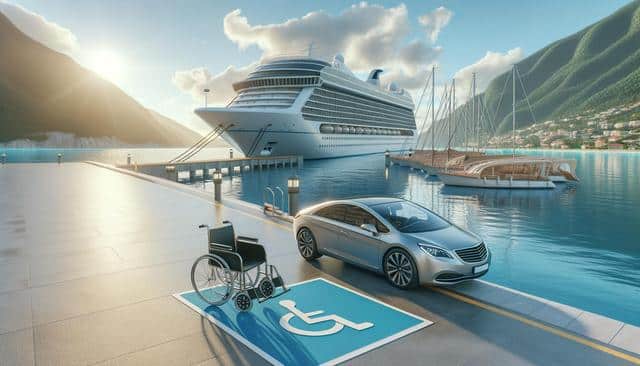
Cruise Travel for Guests With Disabilities and Their Carers
Planning the Right Cruise
When considering cruises for disabled travelers with carers, planning is essential to ensure a comfortable and enjoyable experience. Different cruise lines offer varying levels of accessibility, and it’s crucial to research in advance. Look for cruises that clearly outline their accessibility features and are transparent about what is available onboard and at ports of call. Some cruise operators provide dedicated support lines or accessibility coordinators, which can be especially helpful during the booking process.
Before selecting a cruise, consider the following factors:
- Availability of wheelchair-accessible staterooms with modified bathrooms
- Elevator access to all decks and public areas
- Accessible shore excursions designed for mobility-impaired guests
- Medical support onboard in case of emergencies
Reputable travel agents or agencies that specialize in accessible travel can also be a valuable resource. They often have firsthand knowledge of cruise lines that are more accommodating and can recommend itineraries that include accessible ports and excursions.
Accessibility Features Onboard
Many modern cruise ships are designed with accessibility in mind, offering a range of amenities and modifications that cater to guests with mobility challenges. These features not only support the guest with a disability but also ease the responsibilities of their carer, creating a more relaxing experience for both.
Common onboard accessibility features include:
- Automatic doors and wide corridors for easier wheelchair navigation
- Roll-in showers with handrails and fold-down seats
- Visual and auditory aids for guests with hearing or vision impairments
- Accessible dining areas and theater seating
Some ships also offer equipment rental, such as mobility scooters or hoists, although it’s recommended to reserve these in advance. Additionally, signage and emergency instructions are often available in braille or large print formats. These thoughtful inclusions help ensure that all passengers can enjoy the ship’s amenities independently or with minimal assistance.
Support for Carers
Carers play a vital role in ensuring the well-being of travelers with disabilities, and cruise lines are increasingly recognizing their needs as well. Some cruises offer carer-friendly services that acknowledge the physical and emotional work of caregiving during travel.
Features that can support carers include:
- Flexible dining arrangements to accommodate caregiving schedules
- Priority boarding and disembarkation processes
- Access to onboard respite activities or services
- Information sessions or support groups for carers
In some cases, carers may be eligible for reduced fares or packages that include their accommodations. While not all cruise lines offer these options, it’s worth inquiring during the booking process. Carers should also ensure they have access to medical support or emergency contact protocols in case the person they are supporting has specific health needs.
Shore Excursions and Port Accessibility
One of the joys of cruising is exploring new destinations, but accessibility at ports can vary significantly. When booking cruises for disabled individuals, it’s important to review the port itinerary and determine which stops offer accessible excursions and transportation.
Many cruise lines now highlight accessible shore excursions in their brochures or online materials. These tours are designed with the needs of mobility-impaired guests in mind and often include:
- Ramp-equipped buses or vehicles
- Accessible restrooms along the tour route
- Flat or paved pathways at tourist sites
- Guides trained to assist guests with varying needs
Before disembarking at a port, cruise staff can assist with planning and coordination to ensure smooth transitions. It’s also helpful to bring a detailed itinerary and contact information for local transportation providers who understand accessibility requirements. For carers, this preparation reduces stress and ensures that both they and the individual they care for can enjoy onshore experiences together.
Tips for a Smooth Sailing Experience
To make the most of a cruise with a disabled guest and their carer, thoughtful preparation and communication are key. Once the cruise is booked, reach out to the cruise line’s accessibility department to inform them of any specific needs. Early communication helps ensure that accommodations are arranged in advance and that staff are prepared to assist when needed.
Additional tips include:
- Arrive at the port early to navigate boarding at a comfortable pace
- Bring all necessary medical supplies and documentation
- Label mobility equipment to avoid confusion
- Use travel insurance that covers medical and accessibility-related interruptions
During the cruise, regular check-ins with guest services can help address any emerging needs. Whether it’s modifying an activity or requesting additional support, cruise staff are generally trained to respond with sensitivity and professionalism. Maintaining open communication ensures that the journey remains enjoyable and manageable for both the guest and the carer.
Conclusion: Accessible Cruising Can Be a Rewarding Experience
Cruises for disabled individuals with carers offer a unique opportunity to explore the world in a supportive and well-structured environment. With thoughtful planning, open communication, and attention to accessibility features, cruising can become a relaxing and enriching experience for everyone involved. Whether you’re traveling with a loved one or supporting a client, the right cruise can provide comfort, adventure, and meaningful connection. As awareness and demand grow, more cruise lines are adapting their services to meet these important needs, making inclusive travel ever more possible.


